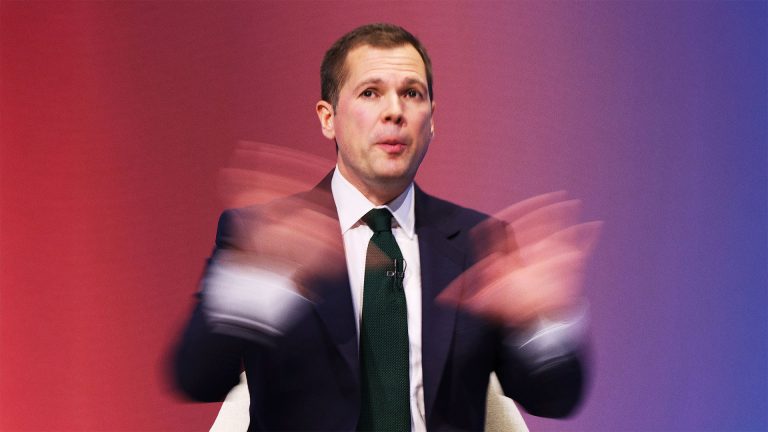During the first term of Donald Trump’s presidency, it became a running joke among White House correspondents that every week was “Infrastructure Week”, largely because of the number of times the press secretary announced this to be so, only for it to be immediately derailed by some other issue – usually by Trump himself.
As his second term approaches, it looks like the inverse of “Infrastructure Week” will likely be upon us: whatever else is going on, the internet will likely be arguing about immigration week in, week out.
The early fractures are certainly showing. Who would have guessed that the techbro faction of MAGA – led by Elon Musk and Peter Thiel, two South African immigrants eager to bring more of the alleged “brightest and best” to America on H-1B tech worker visas – might clash with the rest of the ethno-nationalist MAGA movement, who waved official campaign-issued “mass deportations now” placards at Trump’s election rallies?
But as any major online row makes its way through the discourse, dozens of smaller arguments follow in its wake, like eddies after an ocean wave. One was launched, albeit indirectly, by the US heterodox commentator Matt Yglesias, whose fondness for (and admitted skill at) trolling Europeans is matched only by his inability to see the funny side of any ripostes sent back his way.
Yglesias is fond of noting how poor Britain is relative to the USA, and so in the midst of the Elon MAGA fight, he posted: “In addition to uncapping H-1B visas, I believe we should open our doors to people fleeing poverty and destitution in the United Kingdom.”
It is customary at this point for a British columnist to note the UK has universal healthcare, lower cost of living, longer life expectancy, a lower crime rate and vastly fewer gun deaths, so please consider that obligation fulfilled – but Yglesias is absolutely correct that UK wages, even for the best-paid professions, are far below those of our American counterparts.
This only starts to lead to strange conclusions if you take it too seriously, as the Telegraph’s Sam Ashworth-Hayes appeared to do in another viral tweet with almost 1.9 million views. “The USA realising it can brain drain the top 10 per cent of Brits dirt cheap with no assimilation issues would be an actual catastrophe for the UK,” he posted. “Instant fiscal crisis – this group provides 60% of the income tax take – and loads would go.”
The post is a fascinating one because of the strange mix of loathing and self-regard it displays for the United Kingdom, portraying the country as a near-dead corpse ready to be preyed upon like carrion by the USA.
In trying to make the Ayn Randian point that the UK is desperately reliant on its higher earners (not quite as true as it may appear from the stat in the tweet), Ashworth-Hayes makes the UK appear like a fragile little bird that the US might crush, if it so wished. In reality, the ‘fact’ is akin to a right wing mirror image of the annual Oxfam stat about how the holders of half the world’s wealth could fit on one bus: it’s technically true, but it doesn’t tell us very much in practice and as a result, isn’t nearly as interesting as it first appears.
The foremost reason that UK policymakers needn’t worry too much about the US embarking on an aggressive campaign to poach UK talent is that the direction of travel in that country is very much heading the other way: Trump’s most senior strategist – and one of the few survivors of Trump term one – is the far right figure of Stephen Miller, one of the most ardent backers of anti-immigration rhetoric in Trump’s orbit.
America is not about to pass sweeping reforms of its immigration system – Republicans have a wafer-thin House majority and agree on almost nothing anyway – but if they did, it would be in the direction of making everything tougher. MAGA does not agree with the techbrocrats as to who does and doesn’t qualify as a ‘good’ immigrant.
In reality, the H-1B visas at the centre of the current row probably won’t change much, though life for the people holding them will likely get harder, more bureaucratic, and more hostile.
Leaving that aside, the US has been free and able to poach UK talent for quite some time now: Brits generally find the US visa system easier to navigate than those from many other countries, and Brits do well in big tech, in US media (Brits currently run the Wall Street Journal, CNN, and the Washington Post), and more.
It’s not as if the door is closed and the UK would suffer if it opened. There’s just a limit as to how many people seem to actually want to make the move.
Ashworth-Hayes’ premise – simply looking at UK salaries for the top 10%, US ones, and assuming this is an easily poachable market – also forgets that there are plenty of places with highly-skilled, English-speaking workers on lower local wages than ours: India stands out as a prime example here. Why would big tech want to poach from Britain when it can poach from countries where it has an even bigger premium?
One small phrase embedded in Ashworth-Hayes’ post may serve to answer that question: he believes that Brits would be able to move to the US with “virtually no assimilation issues”. Read that phrase to any Brit who has lived in America (I am one such person), or any American who has made the move the other way, and they’ll likely laugh with recognition – it’s a known syndrome among new arrivals.
A few sitcoms in common does not a shared culture make. Brits soon find that even the coastal cities of New York or San Fran are drastically different to what they’re used to, and find so-called “middle America” downright alien – even if they come to love it. To assume a shared culture is a sure sign of naivety, callowness even, that’s forgivable in a 20-something emigree but which makes a poor basis for what became a policy article in a broadsheet newspaper.
Perhaps the biggest issue with the post, though, came from that age-old danger of someone working in journalism trying to comment on the workings of big business – so yes, I am very much in a glass house and hurling rocks right now.
The simple fact is many big US businesses get to hire skilled British graduates already, but instead of having to pay them astronomical US salaries, they get them at the cheap British rate instead – by employing them in London.
The UK has great business infrastructure, good courts and legal frameworks, a good timezone for international affairs, and a skilled workforce available relatively cheaply. That’s why so many US firms have huge European offices there, and why even if they could suddenly ‘poach’ a lot of Brits to the USA, they’d only be stealing from themselves.
Surely no-one’s suggesting the Yanks are that stupid, are they?











